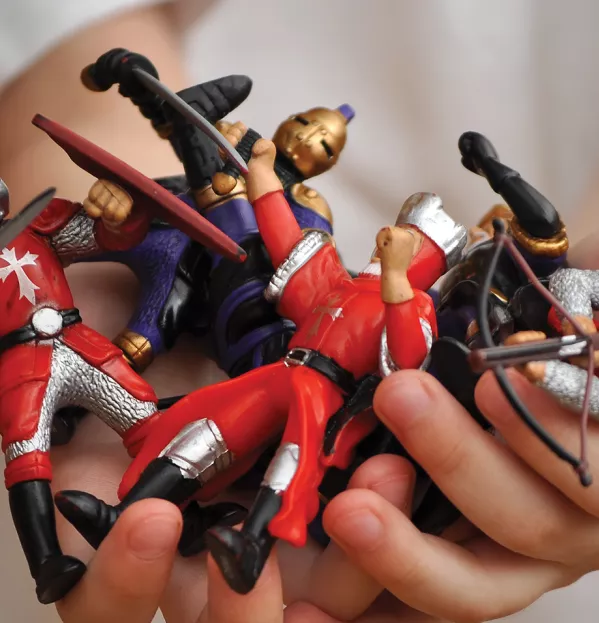My first thought on reading Molly Bolding’s piece on the benefits of playing with dolls in this week’s magazine was that I did not have a doll as a child. But then I remembered the 12-inch figures - Batman, Ghostbusters characters, a WWF wrestler - with which my brother and I would battle each other, pushing the button on each figure’s back to make their arms flail wildly.
I hadn’t really thought about those interactions since. I had dismissed them as not important beyond some sibling bonding. But after reading Bolding’s article, I can now see that we were playing out different scenarios and testing out different emotional reactions, and that this experience was crucial to our development.
“When children are playing alone with dolls,” explains Sarah Gerson of Cardiff University, “they recreate their social worlds, so they practise these social interactions that they do when they are actually interacting with another person, and that seems unique compared with other types of play.”
Research into child development is full of these revelations. Like archaeologists, researchers scrape away at the confusion and seemingly random nature of life at this age and uncover patterns that completely change our understanding of what is important for the adult in these settings to be doing to best facilitate healthy development.
EYFS and the importance of play
None of this is new to those teaching in the early years foundation stage. Way before it became trendy to be research informed, these professionals were looking to academia for explanations about what they were seeing in their settings. They were using that research to inform their practice and co-creating research to better inform future directions.
They haven’t got much credit for this, and neither has it informed policy as it should. Let’s be clear: this research is as valid as everything covered in our cover feature this week, in which the brilliant professor John Dunlosky talks about the findings in cognitive psychology that could aid teachers in the classroom. And yet, while the work of Dunlosky is elevated in policy, it often seems like the policymakers are deaf to the plethora of findings about what is best in the 3-5 age group.
This has damaging consequences. It is too easy to dismiss what, to an uneducated eye, looks superficial. Just as I underestimated the broader benefits of smashing my Egon into my brother’s Bret “The Hitman” Hart, politicians and some colleagues are not looking hard enough at the reasoning that underpins EYFS practice. And because they don’t value it, they deprioritise it.
That can be directly through policy: much of the EYFS guidance from government and Ofsted fails to give enough credit to anything beyond regimented academic approaches, while the introduction of the baseline assessment this term has failed to heed the many valid criticisms from those having to conduct it.
But just as damaging is the everyday prejudice. A tone lingers when those outside EYFS talk about it. It is portrayed as being all about finger painting and wiping noses, as being too emotional and not clinical enough; play is seen as something to be tolerated. This erodes both respect for and the confidence of those within that sector. Most importantly, it is plain wrong.
I now watch with new interest as my children play with their Pokémon characters and purple unicorn figurines. I listen as they negotiate abstract concepts and tricky interactions. I understand, now, that - just like EYFS - those interactions are much more complex than they first seem. And my kids are most likely better off as a result.
@jon_severs
This article originally appeared in the 17 September 2021 issue under the headline “The research speaks for itself: play is not to be taken lightly”




